British Science Week 2024: Time
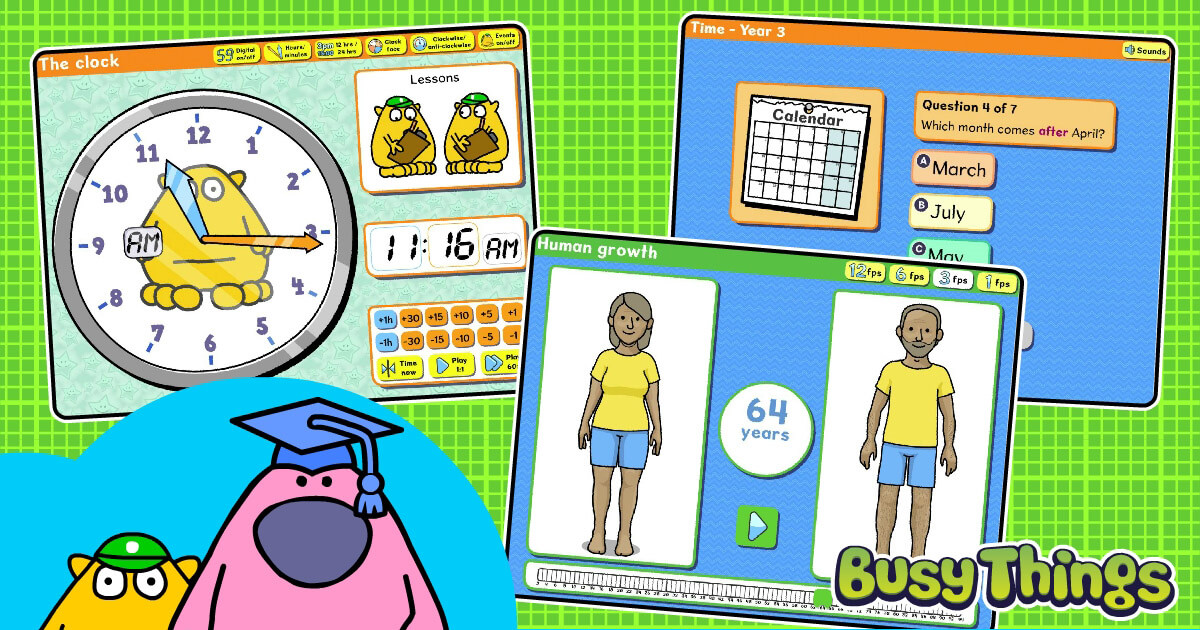
British Science Week celebrates everything to do with science, technology, engineering and maths. This year, it takes place between 8th and 17th March and its theme is ‘Time’.
In this blog, we look at some of the topics you could cover and highlight Busy Things’ activities which are a good fit.
Visit British Science Week’s website too for age-specific groups and hands-on learning inspiration.
1. Time
It wouldn’t be right to look at time without looking at the clock, so that is where we start.
A great place to get a measure of what we offer in this area is our Lesson library. Here you’ll find lesson outlines for:
- Telling time to the hour, to half past, to quarter past/to and to the minute
- Converting units of time
- Converting between analogue and digital clock readings
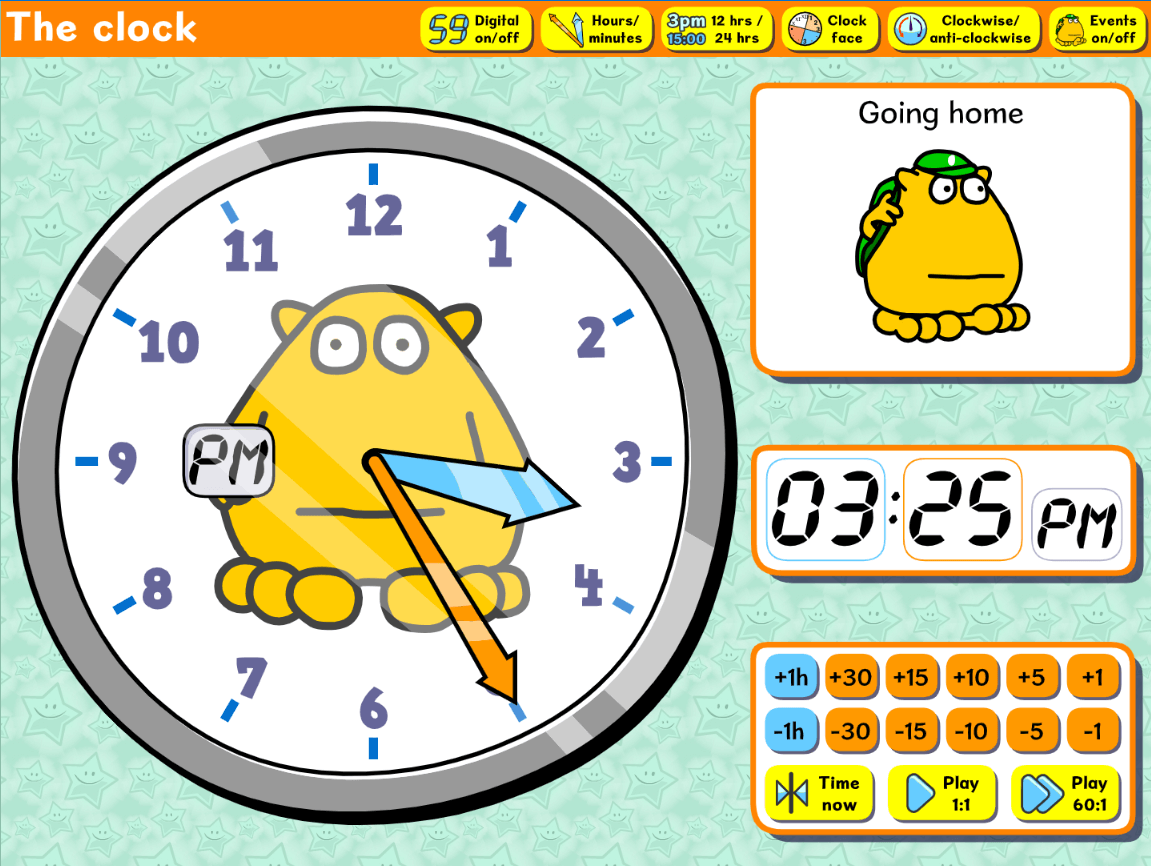
To the right, you’ll find ‘The clock widget’, which we’ve made free to play for British Science Week.
It’s one of our most flexible tools and helps children to understand:
- how the school day is structured around time
- how the big and small hands work together to tell us what time it is.
2. Season
Moving on from time itself, we can look at what the passing of time means. We’ve looked at minutes and hours, but we can look beyond those to the months of the year and even seasons. How does spring differ to winter? Summer to autumn?
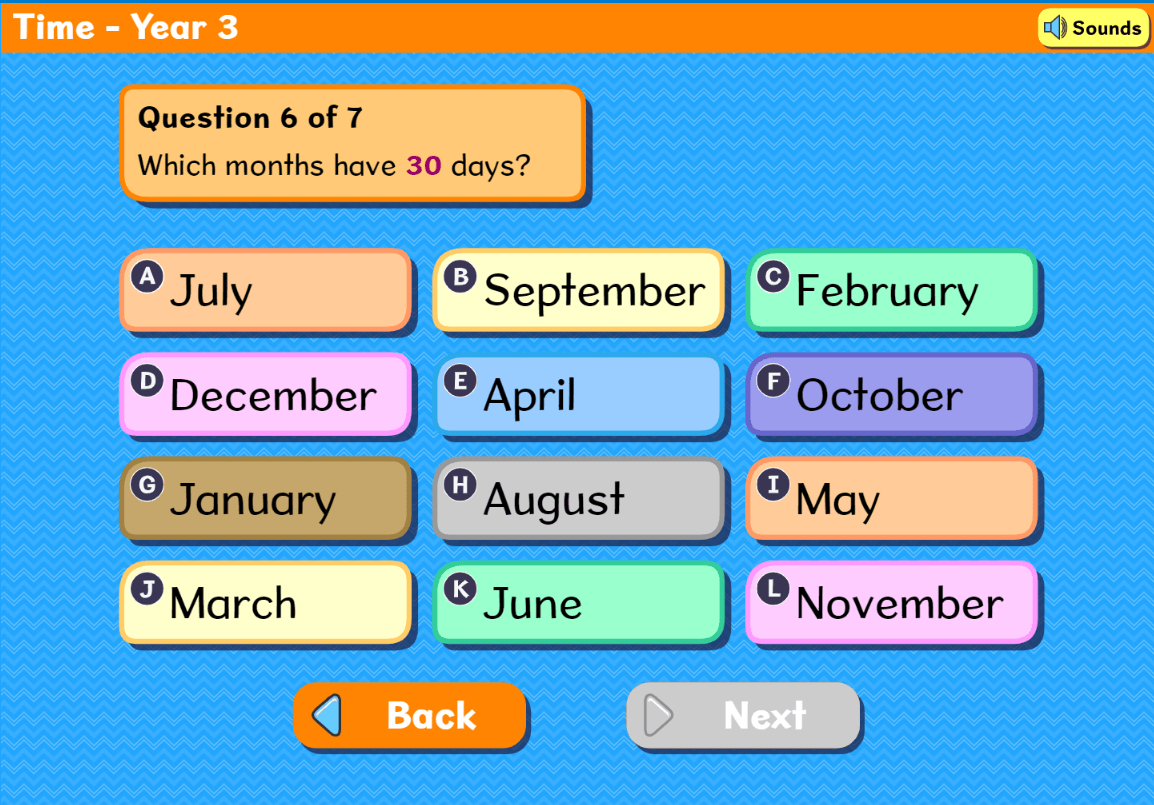
Our ‘Time quiz – Year 3’ includes questions relating to all these ideas and tests pupils’ time-telling skills too.
We also have writing projects for each of the seasons, encouraging the children to think about changes that are happening in the environment around them. When is it coldest and hottest? When do plants and trees grow most? When do they die off?
3. Life cycles
At its very simplest, a life cycle is the series of developments that take place in something over time. Frog spawn develops into tadpoles, which transform into frogs, for example.
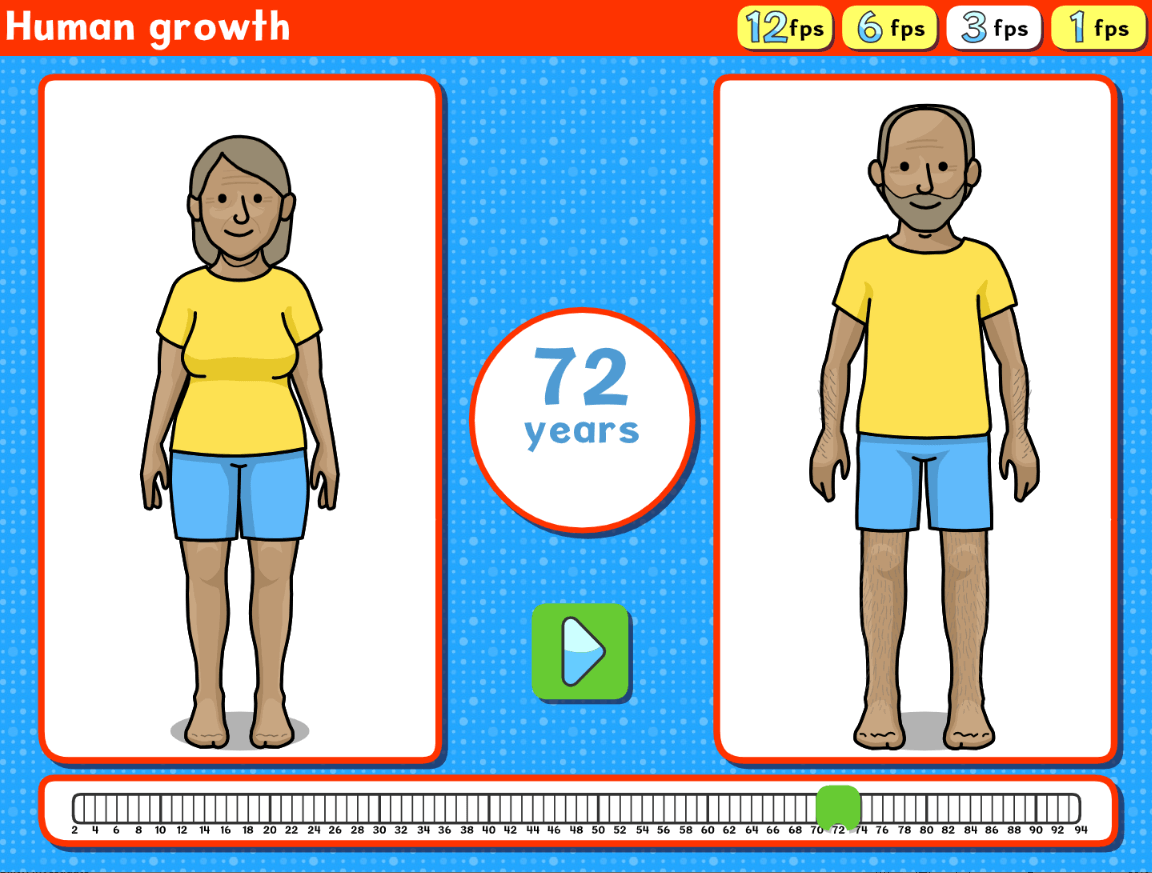
We’ve lots of activities that explore life cycles for plants and animals We also have ready-made lesson plans for the 4-9-year-old age range, which could save you valuable time!
Last year, we also introduced some new activities focusing on human growth, which show how our bodies develop over time.
The ‘Human growth widget’ is featured on the right.
4. Planets
We all know that a year (365 days) is the amount of time it takes for the Earth to revolve around the Sun, but did you realise a year is different on other planets? Different planets are a different distance away from the Sun, so that affects the length of their year. Mind-blowing, huh?
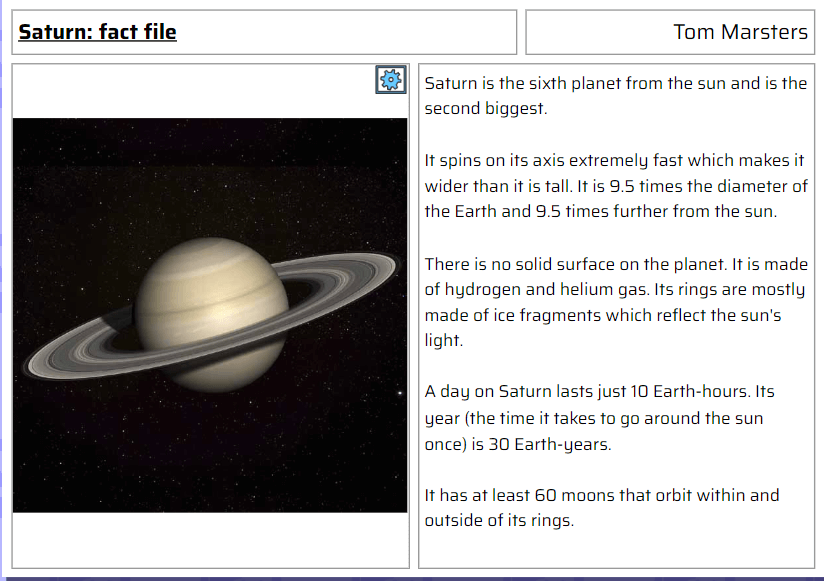
Busy Things has writing projects available for the rocky planets (Mercury, Venus and Mars) as well as the gas giants (Jupiter, Saturn, Neptune and Uranus) to help your pupils understand what time looks like there.
All the information they’ll need is included within the guidance.
5. Recycling
Recycling is a little bit different to the other areas we’ve covered. In the other sections, we’ve looked at how things change over time, but with waste, the issue is that they don’t change.

According to BBC Science Focus, glass bottles take a million years to decompose, plastic bottles 450 years and plastic bags 200-500 years. Recycling is critical because it helps us to use the resources to their optimum before they have to go to landfill. And, in some cases, can prevent them going to landfill at all.
Our last recommendation, therefore, is for our ‘Recycling’ poster. The children can choose their own headline and learn about which items can be recycled.
Use it in conjunction with our ‘Plastics in the oceans’ poster, which includes information about how plastics harm our rivers and seas, and impact the life there.
Summary
We hope this blog has given you some ideas to help you cover ‘Time’ for British Science Week. It’s a far-reaching theme that can be looked at in a multitude of ways across the curriculum!
Want to see the Busy Things activities we’ve mentioned?
If your school subscribes to Busy Things already, you can access all the activities mentioned here by simply typing their titles into the Search feature.
If you don’t already subscribe but would like to see our activities, why not take out a free 28-day trial with us? Simply click here for this. You’re welcome to have a virtual tour via Zoom too. If you’d like one, contact us here and we’ll get it organised!